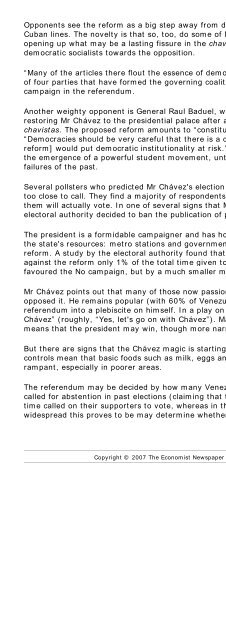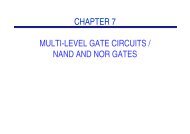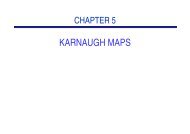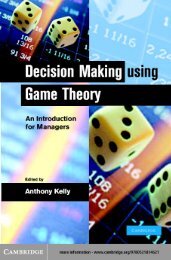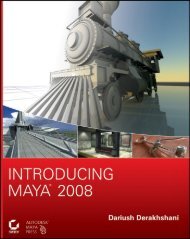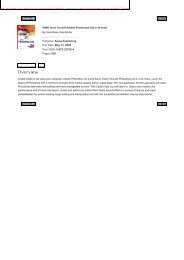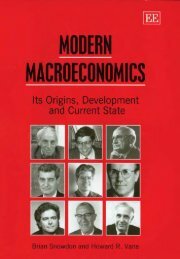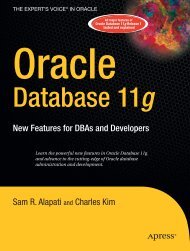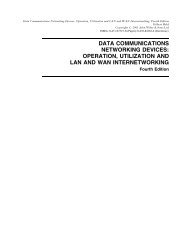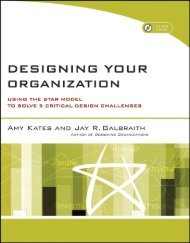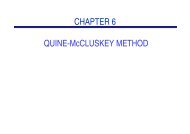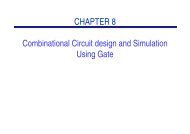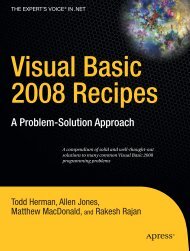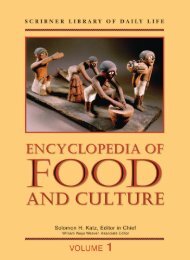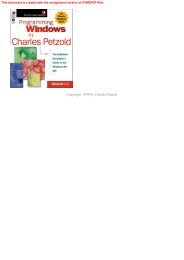The Economist December 1st 2007 - Online Public Access Catalog
The Economist December 1st 2007 - Online Public Access Catalog
The Economist December 1st 2007 - Online Public Access Catalog
- No tags were found...
You also want an ePaper? Increase the reach of your titles
YUMPU automatically turns print PDFs into web optimized ePapers that Google loves.
Opponents see the reform as a big step away from democracy and towards a totalitarian state alongCuban lines. <strong>The</strong> novelty is that so, too, do some of Mr Chávez's erstwhile supporters. <strong>The</strong> reform isopening up what may be a lasting fissure in the chavista camp, driving those who see themselves asdemocratic socialists towards the opposition.“Many of the articles there flout the essence of democracy,” says Ismael García, leader of Podemos, oneof four parties that have formed the governing coalition since 1998 but which has now joined the “No”campaign in the referendum.Another weighty opponent is General Raul Baduel, who was defence minister until July and whose role inrestoring Mr Chávez to the presidential palace after an abortive coup in 2002 made him a hero tochavistas. <strong>The</strong> proposed reform amounts to “constitutional fraud” and a “coup d'état”, he says.“Democracies should be very careful that there is a division of powers, with counterbalances. This [thereform] would put democratic institutionality at risk.” For its part, the opposition has been revitalised bythe emergence of a powerful student movement, untainted by involvement in the 2002 coup or otherfailures of the past.Several pollsters who predicted Mr Chávez's election victory last year reckon that the referendum is nowtoo close to call. <strong>The</strong>y find a majority of respondents oppose the reform, but it is not clear how many ofthem will actually vote. In one of several signs that Mr Chávez is rattled, the government-dominatedelectoral authority decided to ban the publication of polls in the last week before the vote.<strong>The</strong> president is a formidable campaigner and has honed a powerful political machine that can draw onthe state's resources: metro stations and government offices are plastered with posters backing thereform. A study by the electoral authority found that government-linked television channels gave thoseagainst the reform only 1% of the total time given to those in favour; the remaining commercial channelsfavoured the No campaign, but by a much smaller margin.Mr Chávez points out that many of those now passionately defending the 1999 constitution originallyopposed it. He remains popular (with 60% of Venezuelans, the polls suggest). He is striving to turn thereferendum into a plebiscite on himself. In a play on words, the placards proclaim “SIgue conChávez” (roughly, “Yes, let's go on with Chávez”). Many shrewd observers in Caracas reckon that all thismeans that the president may win, though more narrowly than in the past.But there are signs that the Chávez magic is starting to fade. Inflation is rising, while three years of pricecontrols mean that basic foods such as milk, eggs and flour are often unobtainable. Violent crime isrampant, especially in poorer areas.<strong>The</strong> referendum may be decided by how many Venezuelans bother to vote. Those in the opposition whocalled for abstention in past elections (claiming that the electoral authority was not impartial) have thistime called on their supporters to vote, whereas in the chavista camp, there are signs of apathy. Howwidespread this proves to be may determine whether or not Venezuela remains a democracy.Copyright © <strong>2007</strong> <strong>The</strong> <strong>Economist</strong> Newspaper and <strong>The</strong> <strong>Economist</strong> Group. All rights reserved.


